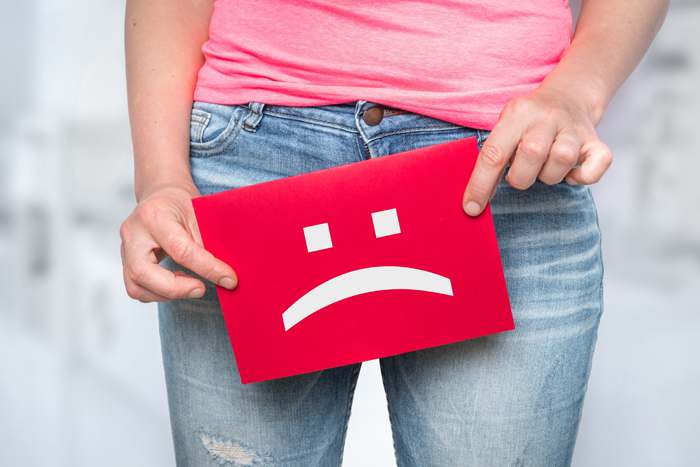Urine incontinence Treatment & Diagnostics in Chirag Enclave, Delhi
Urine incontinence
Urine incontinence is an impulsive leakage of urine when they do not want to do it. This condition occurs when you either lose control over the urinary sphincter or the sphincter grows weak. This is a common problem found in many people, especially more in females than males.
Under this condition, you are unable to prevent urine from leaking out. With the increase in age, your chances of developing urine incontinence increase. There are several reasons behind the occurrence of this condition, the primary ones being stress factors, like coughing, obesity, and more. It can even develop during or after pregnancy.
To reduce or prevent the condition, doctors may recommend urine incontinence treatment in Delhi in bladder control and Kegel or pelvic floor exercises.

Causes of Urine Incontinence
Urine incontinence types usually are connected to the causes that help in the formation of this condition, which include:
- Stress Incontinence
Causes of stress incontinence are:- Pregnancy & childbirth
- Age
- Obesity
- Hysterectomy and similar surgical procedures
- Menopause, because the low estrogen makes the muscles weaker
- Urge Incontinence
Causes of urge incontinence are:- Several neurological conditions, like stroke, Parkinson’s disease, and multiple sclerosis (MS).
- Cystitis, which occurs when the lining of the bladder is inflamed.
- Enlarged prostate that may cause the urethra to become irritated and the bladder to drop.
- Total Incontinence
Causes of urge incontinence include:- An injury in the spinal cord results in the impairment of the nerve signals between the bladder and the brain.
- Due to an anatomical defect since birth.
- Because the fistula is developing a channel or tube between the bladder and an adjacent area, usually the vagina.
- Overflow Incontinence
Causes for overflow incontinence are:- A tumor that presses against the bladder
- Constipation.
- Urinary stones.
- An extended prostate gland.
- An excessively more profound urinary incontinence surgery.
Symptoms of Urine Incontinence
- Stress Incontinence: Symptoms of stress incontinence occur when you exert pressure on your bladder, i.e., too much stress by sneezing, laughing, exercising, lifting something heavy, or coughing.
- Urge Incontinence: The urge is caused by an involuntary and sudden contraction of the bladder;’s muscular wall. The common symptoms are the sound of running water, sex, specifically during orgasm, or a sudden change in position.
- Total Incontinence: A congenital problem, i.e., a defect from the time of birth, an injury in the urinary system or spinal cord, or the development of a fistula, are the symptoms given by a urine incontinence specialist in New Delhi.
- Overflow Incontinence: Problems with prostate gland (enlarged gland obstructing the bladder), a damaged bladder, or a blocked urethra.
When to Consult a Doctor for Urine Incontinence Problem?
Under the following circumstances, you must seek medical help at a urine incontinence hospital near me:
- If the condition negatively impacts the quality of life you were earlier living.
- If the condition indicates a more grave underlying condition.
- If there is an increase in the leakage risk in older adults as they rush to the bathroom.
- If it causes you to limit your daily activities and put restrictions on your social interactions.
Request an appointment at Apollo Spectra Hospitals, Chirag Enclave, New Delhi
Call 1860 500 2244 to book an appointment.
Treatment for Urine Incontinence
- Pelvic floor exercises, also called Kegel exercises, help strengthen the pelvic floor muscles (the muscles that help control urination) and urinary sphincter.
- Bladder Training: Delaying your urge to urinate, scheduling your toilet timetable, and practicing double voiding, i.e., urinating, then waiting for a minute or so, and then urinating again.
- Medications: Following medications are allowed by urine incontinence doctors in Delhi in combination with other exercises.Anticholinergics that calms overactive bladders and will help you control your urination urge. Imipramine or Tofranil, which is a tricyclic antidepressant. And, Topical estrogen.
- Medical Devices for Females: Pessary, Botox (Botulinum Toxin Type A), Radiofrequency Therapy, Urethral Inserts, Sacral Nerve Stimulator, Bulking Agents.
- Surgery, only if the above treatments do not show any signs of improvement: Sling procedures, artificial Sphincter, and Colposuspension.
Conclusion
Urine incontinence is not a major medical problem, and urine incontinence treatment in Delhi is readily available. But, if left neglected, it may be a reason for your embarrassment in public, which may negatively impact your future way of living. So, you should consult your doctor about this condition and follow what he asks you to do.
Urine incontinence doctors in Delhi say that the condition is not a life-threatening medical condition. Still, it may significantly impact your social life, and the quality of life you were previously living as the condition makes you bothersome.
If you reduce your caffeine intake to below 100 mg a day, it may help you reduce the urge for incontinence symptoms considerably. Cutting down on your intake of caffeinated drinks, viz colas, coffee, teas, and energy drinks, will help you control incontinence and reduce the dependency on urine incontinence hospitals in Delhi.
For most patients looking for a urine incontinence hospital in Delhi, the condition goes away within a year after diligently doing the exercises or taking the medications that the doctors have suggested.
Symptoms
Our Top Specialities
NOTICE BOARD
CONTACT US
CONTACT US
 Book Appointment
Book Appointment


.svg)
.svg)
.svg)
.svg)








